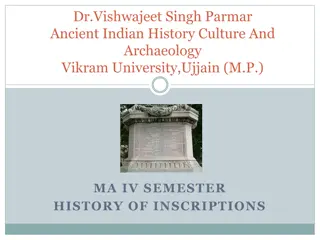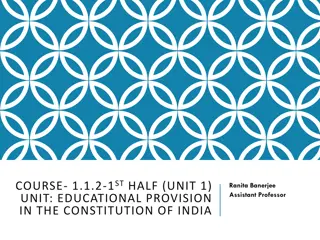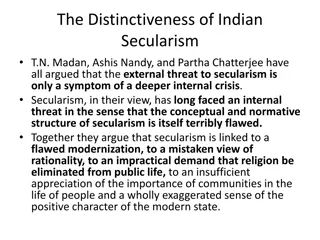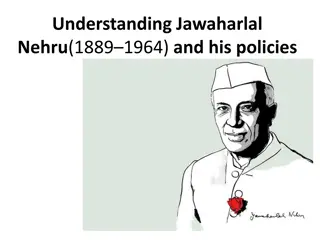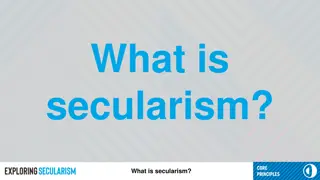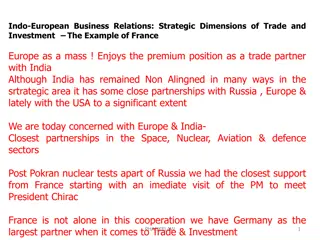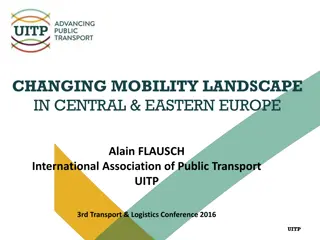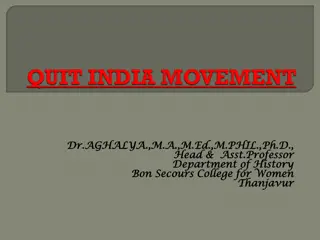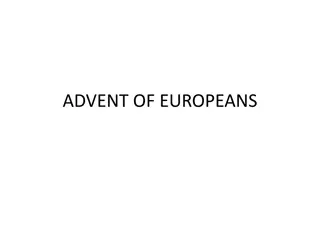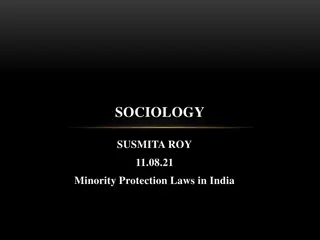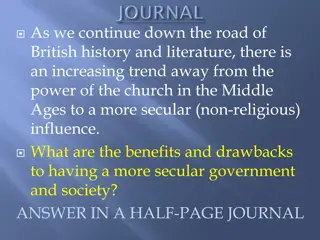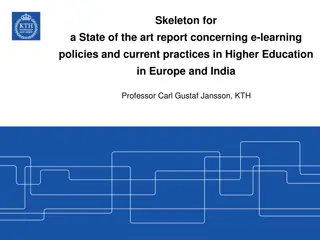Evolution of Secularism: From Europe to India
Secularism, originating from the West, advocates for the separation of politics and religion, ensuring the state doesn't favor any religion while safeguarding individual rights. In Europe, religious wars prompted the adoption of toleration principles. The Enlightenment era in Europe paved the way for modern science and diverse ways of thinking, leading to the secularization of societies. The concept of secularism evolved to establish a wall of separation between the secular and the sacred, akin to a system of checks and balances on power to safeguard individual freedoms.
Download Presentation

Please find below an Image/Link to download the presentation.
The content on the website is provided AS IS for your information and personal use only. It may not be sold, licensed, or shared on other websites without obtaining consent from the author. Download presentation by click this link. If you encounter any issues during the download, it is possible that the publisher has removed the file from their server.
E N D
Presentation Transcript
Meaning of Secularism The meaning of secularism can be explored in two ways. It could be explored as a general concept or one could look at the way the concept has evolved in India and see why secularism was adopted as the main organizing principle of the Indian polity. On the other hand, one could do both, and see how the concept has evolved in a direction that is unique to India. The concept of secularism, as it has come to us from the West, simply means that: (a) the sphere of politics and that of religion is separated, (b) the state will not adopt a religion as the State religion, and (c) no one shall be discriminated against on the grounds that s/he belongs to a particular religion.
Meaning of Secularism (contd.) This meaning of secularism has been defined in the US context by President Thomas Jefferson as a wall of separation that exists between the State and religion. Many states in Europe, till the 17thcentury, were bogged down in religious wars against their own citizens, and against other States which may have adopted another religion. What is more, the right to religion is a Fundamental Right. The right to freedom of conscience is one of the important rights that forms a part of the general right to freedom.
Meaning of Secularism (contd.) To deny to individuals this freedom is to deny them freedom in general which is a violation of the basic principles of democracy, that each human being has rights merely because s/he is human. To add to this, factors such as gender, caste, class, and religion, are simply morally irrelevant when it comes to recognizing individual rights. Over time, religious wars in Europe were controlled through the adoption of the principle of toleration which had been enunciated by the English political theorist John Locke.
Enlightenment and Europe Another reason for this control was the Enlightenment in Europe, the coming of the industrial age, the development of modern science which gave to the people other ways of thinking and believing. Modern science challenged the power of the Church to tell people what to believe and how to believe. It came to be argued by many theorists that individuals possessed reason and reason gave them the power to think and to evaluate various opinions. Modernity in Europe did not reject religion; nor did the people become irreligious; religion became just another way to help Europeans to understand the world.
Enlightenment and Europe (contd.) But there were other ways of understanding the world available to the moderns, ways given by science, by literature, by philosophy, by art, and by the development of social sciences. Religion in effect became a private affair and, in the process, societies became secularized. However, the suspicion that the mix between religious and politics is dangerous for individual freedom, remained. Therefore, the wall-of-separation thesis is important because it separates the secular and the sacred. Secularism can be considered to be another way of instituting a separation of powers, and checks and balances. Power must be controlled, and the only way to do this is to separate the different forms of power.









